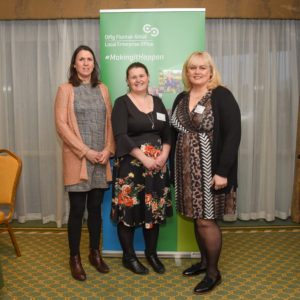Micro Businesses to Cut Emissions and Save Energy through New Programme
Businesses in the South East are being offered a chance to cut their emissions and ultimately save on their energy costs through a new scheme, the Green For Micro Programme.
The programme is aimed at manufacturing businesses with fewer than ten employees. It is an Enterprise Ireland scheme in order to aid businesses with their transition to becoming a low carbon business. The Green For Micro Programme is a pilot scheme, which if successful, may be rolled out nationally.
The Green For Micro Programme is a hands-on project which incorporates the five Local Enterprise Offices in the region; Carlow, Kilkenny, Wexford, Waterford and Tipperary. In collaboration with each of the LEOs, 3 Counties Energy Agency (3cea) will provide guidance throughout the Green For Micro process.
3cea will act as a mentor for the micro businesses. The engineers in 3cea will audit the micro businesses’ energy, waste, water, procurement and transport outputs, while outlining how to transition to more environmentally-friendly choices.
Enterprise Ireland regional executive Brian Fives said micro businesses across the region are eager to play their part in developing a low-carbon economy.
“Green For Micro shows them the way. Auditing their energy consumption, mapping the results and monitoring their transition will provide an invaluable insight into how every enterprise can play its part in Ireland meeting its 2030 climate targets,” said Mr Fives.
Engineer with 3cea, Shane Faulkner, said each participating business will be given up to nine days of expert help including audits, reports and mentoring.
“The level of buy-in from manufacturers in the region is extremely encouraging and we are really looking forward to playing our part,” said Mr Faulkner.
Phase One
Phase one of the Green For Micro Programme involved a number of Breakfast Briefing Events which have been implemented to explain the programme to businesses in the region.
Aileen McGrath of Kilkenny Local Enterprise Office urged qualifying micro-businesses to attend the no obligation breakfast briefing, pick up an expression of interest form and see how small changes in their manufacturing processes and general business decisions can make a difference.
“While our primary target is manufacturing, micro enterprises in other sectors may also qualify and we encourage them to attend,” said McGrath.
The first of the Green For Micro Breakfast Briefing Events started on Tuesday 28th January, at the Ferrycarrig Hotel in Wexford. Two speakers, Philip Kehoe of Kehoe’s Potatoes and Nicholas Dunne of Killowen Farm, presented on the day to speak about their transition to becoming a low carbon business in the area.
The second of the Breakfast Briefings ran in the Tower Hotel in Waterford on 11th February. John Flahavan of Flahavan’s and Kevin Jephson from Ardkeen Quality Food Stores presented on their energy savings for their green choices.
Newpark Hotel in Kilkenny was the venue for the third installation of the Breakfast Briefings on 13th February. Rory Williams from Countrystyle Foods spoke to the audience about their greener company model, while Trudie Power of Trudies Kitchen also presented on the benefits of such environmentally-friendly focused decisions.

Jane Wickham (3CEA), Aileen McGrath (Senior Enterprise Development Officer) and Trudie Power (Trudies Kitchen) PICTURE: Vicky Comerford
The Anner Hotel in Tipperary on 18th February was the penultimate Breakfast Briefing Event where Con Traas from The Apple Farm gave a video presentation, with Ger Crosse of Wood Energy Solutions presenting on his biomass heating system in Philip Fryday’s Clune Mushroom Farm.
The concluding Breakfast Briefing Event took place in the Woodford Dolmen Hotel in Carlow on 20th February. Mary White of Blackstairs Eco Trails spoke first to the audience on the importance of sustainability in the Carlow region. She was then followed by Ray Flynn of Flynn’s Foodhall.
Jane Wickham of 3cea presented at each of the five Green For Micro Breakfast Briefing Events about the grants and supports, which 3cea will provide, to all interested parties in entering Phase Two of the Green For Micro Programme.
Phase Two
Phase two of the programme will involve the energy audits, conducted by 3cea, which will be carried out on ten micro, manufacturing businesses. Two micro businesses in each of the five participating counties will be chosen to proceed into this stage of the programme. At present, there is quite a number of interested parties. A welcoming sign that local enterprises in our area are thinking about a greener future.
Unfortunately, phase two of the Green For Micro Programme is currently on hold due to the Covid-19 Pandemic sweeping the country. A resumption date is yet to be decided on, however, applications are still being processed.
In phase three of the programme, the findings from the energy audits will be showcased at a regional conference. Finally, the concluding phase involves the installation of monitoring equipment in the selected micro businesses.
The Green for Micro Programme is one of three projects grant-aided to the tune of €345,000 by the Government and led by Local Enterprise Offices across the region.
For more information on on The Green For Micro Programme, please contact us on events@3cea.ie














